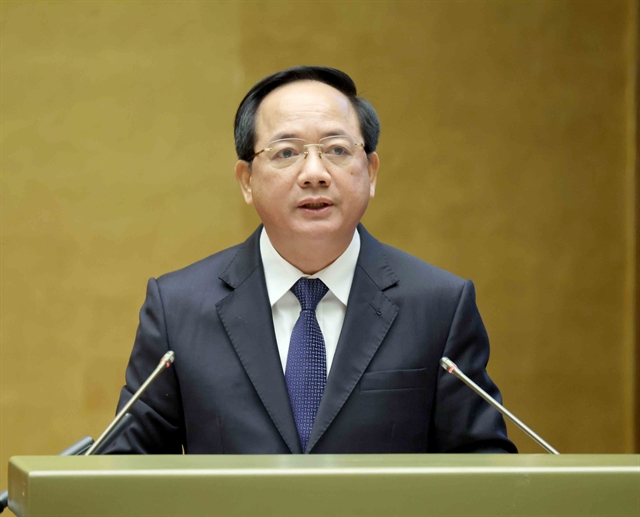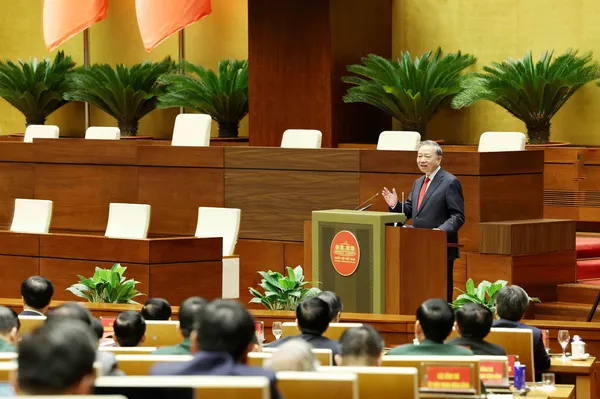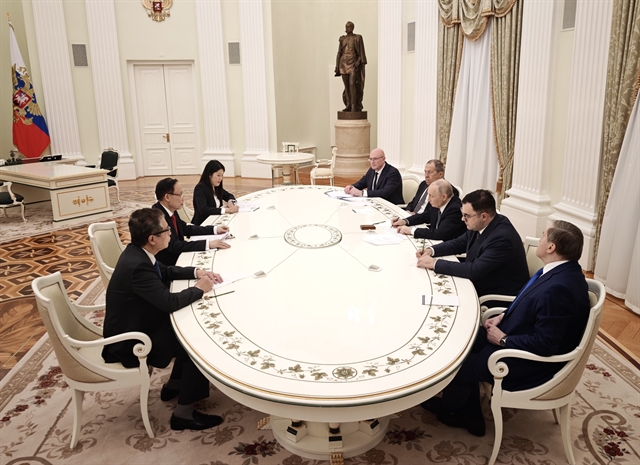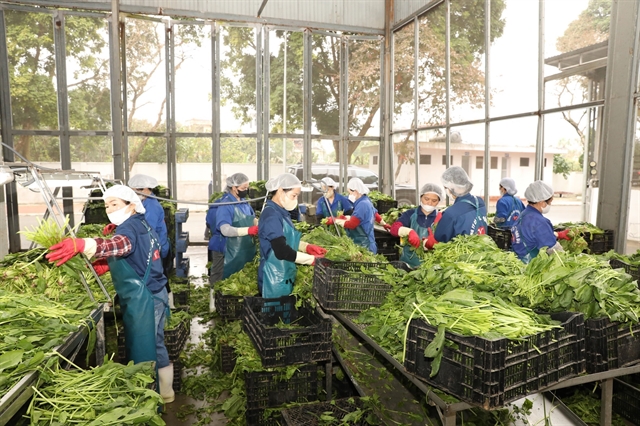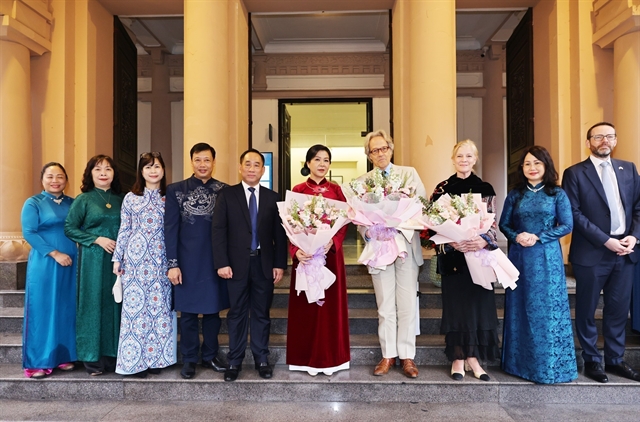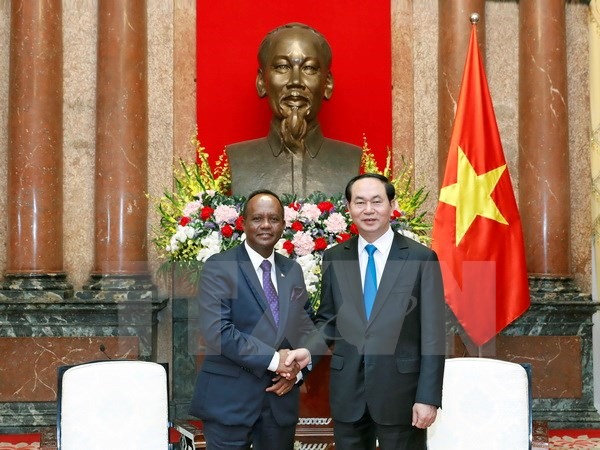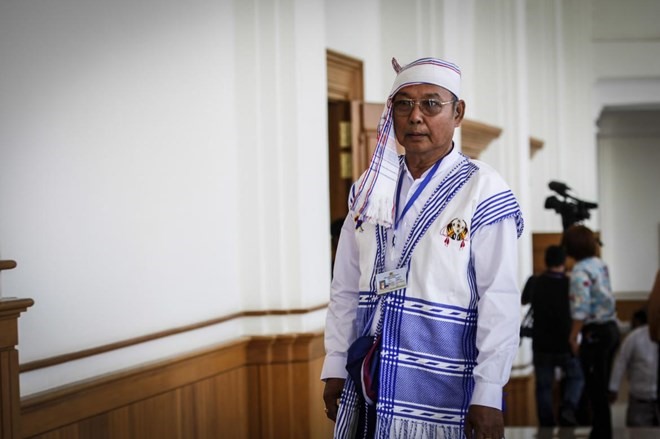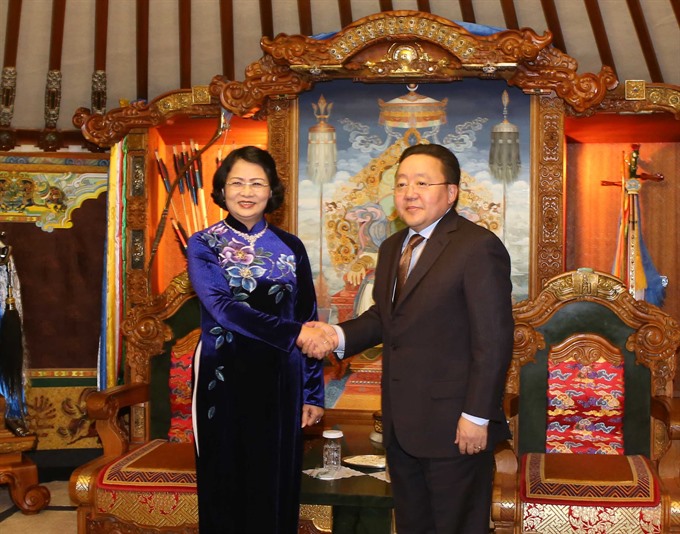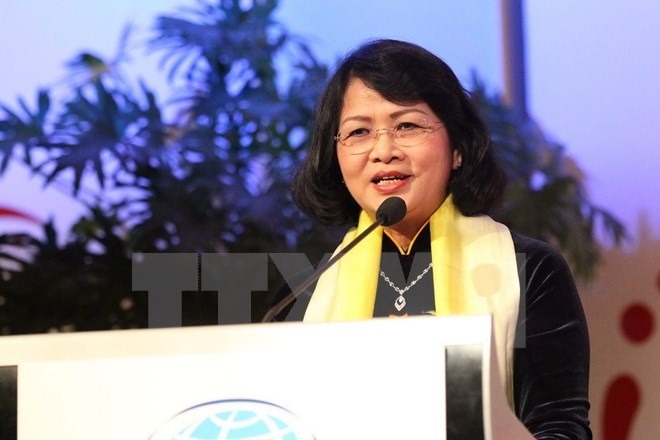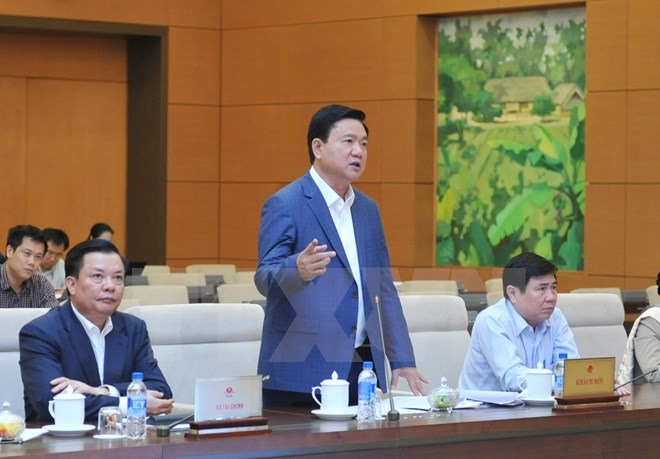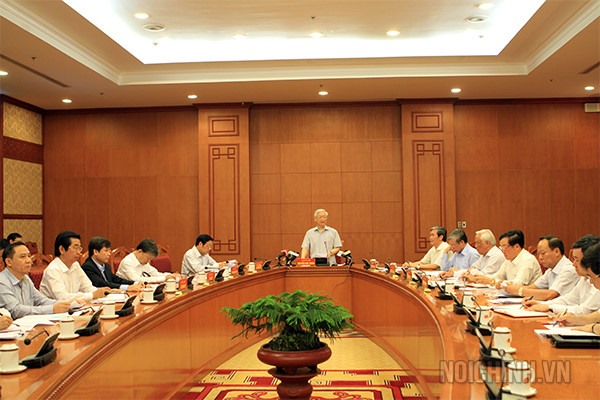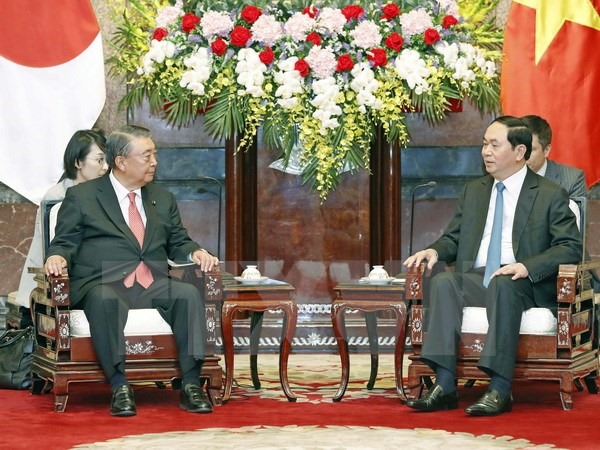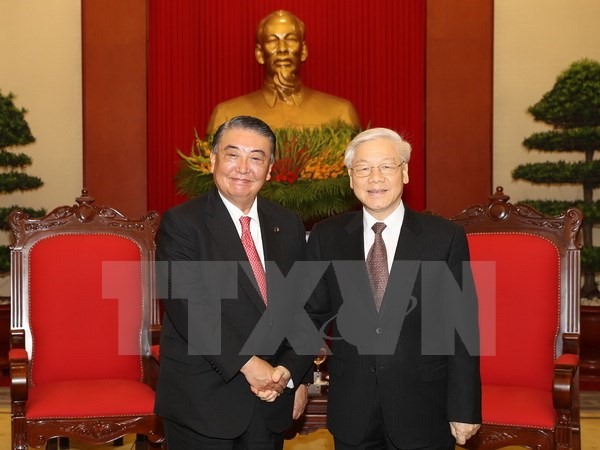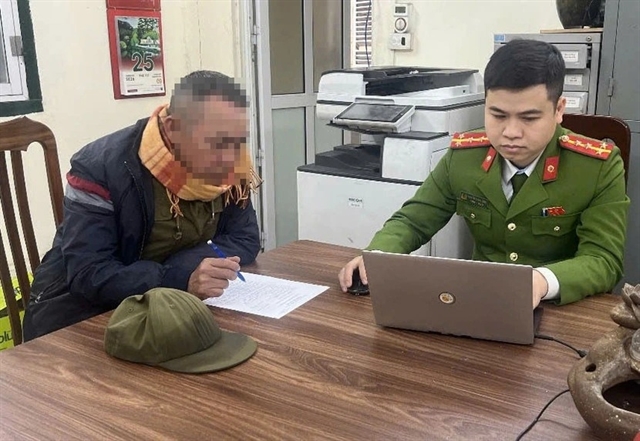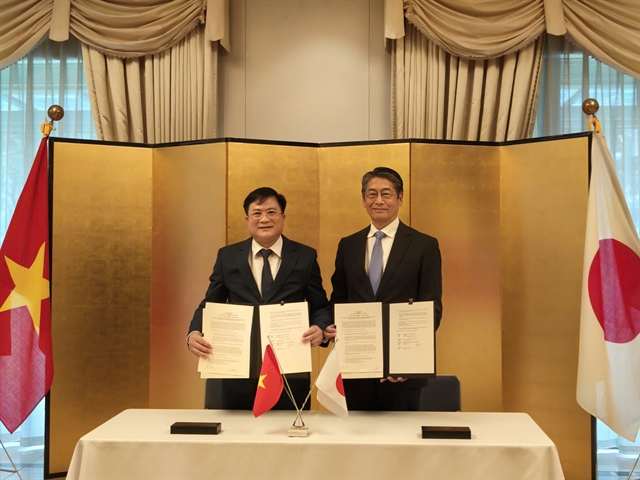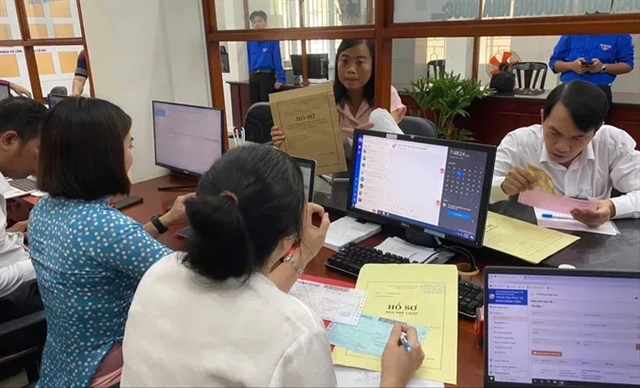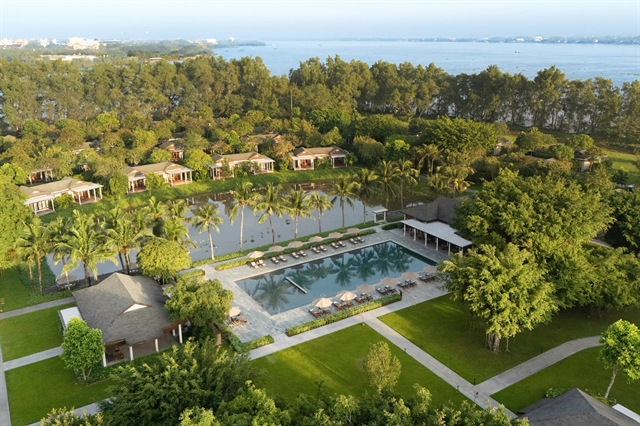
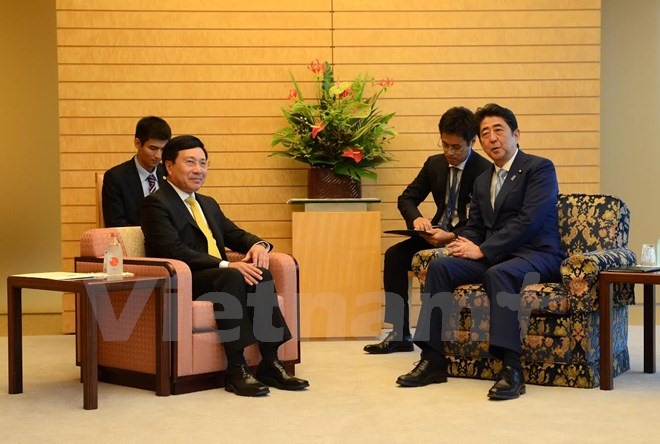 |
| Deputy Prime Minister and Foreign Minister Phạm Bình Minh (L) meets Japanese leaders during his ongoing visit to Japan from May 8-10 at the invitation of Japanese Foreign Minister Fumio Kishida. — VNA/VNS Photo Gia Quân |
TOKYO — Deputy Prime Minister and Foreign Minister Phạm Bình Minh met Japanese leaders during his ongoing visit to Japan from May 8-10 at the invitation of Japanese Foreign Minister Fumio Kishida.
Meeting Prime Minister Shinzo Abe, Speaker of the House of Representatives Tadamori Oshima and President of the Japan International Co-operation Agency (JICA) Shinichi Kitaoka, Minh expressed delight at the development of the Việt Nam-Japan extensive strategic partnership in recent years.
PM Abe thanked President Quang for inviting him to the Asia-Pacific Economic Co-operation (APEC) 2017 and pledged to support preparations for the event in Đà Nẵng and to attend the group’s meetings.
Speaker Oshima, for his part, hailed Việt Nam as an important partner in the region and wished to further promote bilateral ties with Japan.
JICA President Kitaoka said Việt Nam is JICA’s largest co-operative partner and vowed to work to contribute to Việt Nam’s development.
Minh affirmed that the Vietnamese Party, State and Government consider Japan a leading and long-term partner and stand ready to deepen the two nation’s extensive strategic partnership.
During talks between the two FMs and the ninth session of the Việt Nam-Japan Cooperation Committee (VJCC), both sides debated measures to implement agreements reached by the two countries’ high-ranking leaders during the Việt Nam visit by PM Abe last January as well as the agenda for the upcoming Japan visit by PM Nguyễn Xuân Phúc.
Host and guest agreed to hold the VJCC’s second session on co-operation in industry, trade and energy in June and organise a fourth high-level agriculture dialogue for the second half of this year.
On economic co-operation, they decided to promote bilateral economic connectivity and work together to implement the sixth stage of the Việt Nam-Japan Joint Initiative to Improve Business Environment while strengthening joint work in industry and energy.
Japanese FM Kishida promised continued support to Việt Nam’s economic development via the provision of official development assistance and increased partnerships in building infrastructure.
Japan will help Việt Nam carry out action plans for six industries chosen in Việt Nam’s industrialisation strategy within the Việt Nam-Japan collaboration framework until 2020 with a vision to 2030, encourage Japanese investment in Việt Nam and assist the country in reforming State-owned enterprises.
The two sides consented to look into measures to develop Việt Nam’s support and automobile industry and to make it easier for Vietnamese agro-fisheries firms to trade in Japan.
Deputy PM Minh asked for Japan’s support to strengthen pollution monitoring in Việt Nam’s key industries such as coal-fueled thermal power, steel and chemical fertiliser, and build the Law on Support Industry Development.
Apart from agreeing to increase partnership across agriculture, climate change response, personnel training and labour, they lauded negotiations by the two countries’ ministries and agencies towards the signing of a Memorandum of Understanding (MoU) on a joint crediting mechanism and a MoU on support for apprentices.
The two leaders promised close collaboration to prevent workers migrating illegally.
On global and regional issues of shared concern, host and guest vowed to support each other at global and regional forums such as the East Asia Summit, ASEAN, the Asia-Europe Meeting and the UN while consolidating partnerships in international economic connectivity such as the Regional Comprehensive Economic Partnership.
The Vietnamese FM asked Japan to back Việt Nam’s candidacy for non-permanent member of the UN Security Council for 2020-2021 and UNESCO General Director for 2017-2021.
Kishida said Japan supports Việt Nam and will work with the country to hold the APEC Year 2017.
As regards the East Sea (South China Sea) issue, both sides shared the international community’s deep concern over recent developments in the East Sea and agreed on the importance of ensuring peace, security, maritime and aviation safety and freedom, and the settlement of disputes by peaceful means in line with international law, especially the 1982 United Nations Convention on the Law of the Sea and the Declaration on the Conduct of Parties in the East Sea, and reaching a Code of Conduct in the East Sea soon. — VNS
